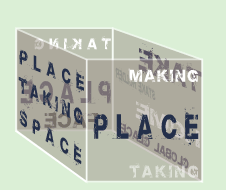In an article for Die Zeit, Henning Su?ebach described how the process of gentrification in Prenzlauer Berg has led to an homogenization of society, where name-brand baby carriages and toy tanks clean the sidewalks of junk and those who don’t conform. Migrants who moved for a better location are okay, but garden-variety refugees aren’t. If you don’t check your email on your Mac while drinking a latte but only want to sell fruit and vegetables, you’ll have it tough in this world of the beautiful and creative.
“The street that Yunus Uygur thought would lead him to happiness is dark. Now he’s trying it again. Maybe this time he’ll find the happiness he seeks. He spent the night in the wholesale market in Westhafen. His old VW bus is now full of bananas, grapes, and tomatoes as it makes its way up Sch?nerhauser Allee, a wide street in the northern part of Berlin. Behind him the Fernsehturm extends into the darkness. It looks like a giant version of the pin symbol in car navigation systems. And that is its function for Yunus. There, where several big streets meet, begins Prenzlauer Berg. And it is there, he was told, that one could find a lot of young, friendly and open people.
“He opened his store right at the Milastra?e stop five months ago. The shop window was small but his hopes—after five years of unemployment that left him looking tired and wrinkled at 37—were high. Yunus is a Kurdish Turk from Reinickendorf. He’d like to be able to afford to send his three children on a class trip someday. That’s why he’s here. That’s why he’s not bothered by the gay sexshops that flank his store. “That’s how life here is,” he sage and shrugged. Yunus doesn’t speak much, and his German is broken.
He is part of the quiet trek of commuters who travel to Prenzlauer Berg each day to sell fruit and vegetables, flowers and wine to the Germans there. From the East come the Vietnamese, from the West come the Turks. “The people here sleep in,” says Yunus and flashes a weak smile. They don’t gather at the tram stop in front of this store until 9:00am. All have coffees in their hands. Yunus thinks the women are beautiful, and the men all have designer stubble and don’t seem pressed for time like he is. Yunus assumes the people are as old as he is but they seem like children to him. Insouciant, chubby-faced, and without compromise. They constantly manhandle his fruit and ask: Where are the bananas from? Are they organic? When he says, “fresh from the market,” they put the fruit back. Everything’s so different in Prenzlauer Berg. In Yunus’s gut there’s disappointment, and in his head a question floats: Can good people be evil?
For more see: ZEITmagazin LEBEN, 08.11.2007 Nr. 46 (German only)

